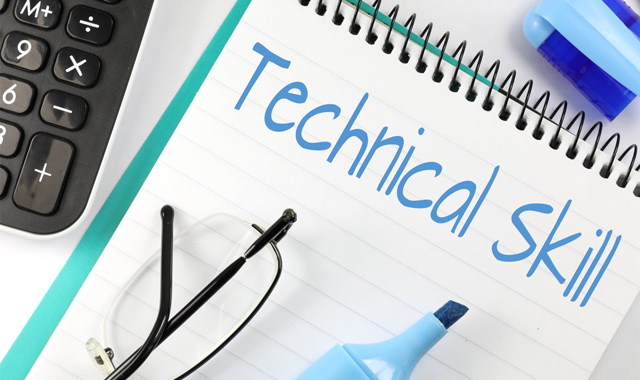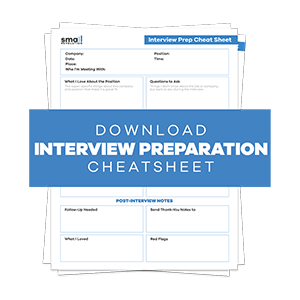Are you getting ready to take your entry-level job interview by storm?
Just like you prepare for a test or game, preparing for an entry-level job interview is vital to be successful.
Do you know why?
The entry-level editing job market has become competitive, with numerous qualified candidates eyeing the limited slots. By preparing for your upcoming interview, you can easily set yourself apart from other contenders and increase your chances of being chosen.
In 2020, two months after graduating from college, I was privileged to be invited for an entry-level editing job interview.
Guess what?
I was hired even though I had no experience.
I owe my success to Small Revolution, the leading online platform for job seekers, where I learned valuable lessons and gained insights I want to share with you.
We will dive into three practical preparation tips that helped me ace my interview and ultimately get hired for one of the best-paying editing jobs.
Tip 1: Research the Company and Job Description
Editors are the backbone of any successful organization because they ensure accuracy and consistency throughout the publications, or websites.
As a result, it is imperative to research the company you’re applying to and its specific needs before the interview.
Take the time to read through the job description and understand what they expect from you in terms of duties and responsibilities. These may vary depending on the industry. They include:
- Purging inappropriate content
- Supporting authors in story development
- Acquiring, refining, and editing manuscripts
- Reinforcing publishing standards throughout the editorial process
- Verifying facts for accuracy and credibility purposes
- Creating editorial policies
- Cross-referencing various materials for reference validation
Once you know what the company is looking for, it’s time to assess your editing skills and determine how they match the job requirements.
Familiarize yourself with the editing team of the organization, understand how they work with other departments and their roles, and research their editorial policies.
For example, suppose you are applying for a job as a copy editor at a publishing company. You should start by learning more about the editing team. Learn more about the chief editor; this includes history, roles, best works, and the expected typical turnaround times.
As a copy editor, your role is to ensure the content published is grammatically correct, clear, and consistent with the company’s style and tone.
You will also work with other departments when checking factual accuracy, legal compliance, and adherence to brand guidelines. For example, if you are working with the graphics department, you must confirm the usage rights of the images and videos before publishing.
Regarding policies, remember each company has its own to govern how content is reviewed, published, and produced.
These policies cover topics such as style and tone, formatting, and the use of images and videos. For example, if it is an academic document, you must ensure it uses a formal tone to establish respect with the readers.
The above information gives you valuable insights into the company’s expectations and editing guidelines. You will also be able to identify potential areas of alignment regarding values and goals.
Additionally, make sure you have a good grasp of the company’s mission, vision, values, and products/services. This information is typically found in the “About Us” section of the website. Take note of what the company stands for and what it aims to achieve.
For example, you want to join a company as an entry-level copy editor. Knowing the company’s mission, vision, and values can help you tailor your responses.
During the interview, you may be asked about your skills, experience, and approach to copy editing. By understanding the company’s mission, vision, and values, you can tailor your responses to align with their goals and values.
For example, if the company mission, vision and values emphasize accuracy and attention to detail, you can talk about your experience with proofreading and fact-checking.
This will show you’re serious about the job because having this kind of knowledge will enable you to explain how your editing services will help the organization achieve its goals.

Doing your homework will give you a better idea of what to expect and help you prepare your own informed interview questions and answers about the organization, its editing department, and your prospective role.
It goes without saying that research gives you the confidence you need to answer questions thoughtfully and demonstrate why you’re the best candidate for an editing job that doesn’t require you to have experience.
Tip 2: Brush Up on Your Technical Skills

Now that you are familiar with the company and job description, it’s time to focus on the technical skills necessary for successful editing.
Polishing your technical skills is essential for your entry-level editing job interview. While it may seem daunting, it is achievable with dedication and preparation.
First, identify the programs and software you must master to achieve successful edits.
The type of editing tool you’ll need is fully dependent on the industry you are in. Here is an overview of the tools editors use.
| Editor | Tools |
Research Editor | Content Management Systems (CMS)
|
Copy Editor | Text Editing Tools
|
As an entry-level candidate, employers will not expect you to be an expert in using these tools, but familiarity with the basics is essential. Make sure you familiarize yourself with the different features of each tool or platform.
Next, practice using the tools you’ve identified with sample projects; you can find plenty of free tutorials online. For example:
Let’s say you are a copy editor and you want to improve your grammar and punctuation skills. You could go on YouTube and search for “grammar and punctuation tutorials.” YouTube will provide you with a list of free tutorials to choose from.
You can watch a few of these tutorials and practice using tools demonstrated using sample sentences. For example, you could learn how to use the Oxford comma correctly or how to identify and correct run-on sentences.
You can improve your skills and become a more efficient copy editor through practice. You could also use the edited sentences as part of your portfolio to showcase your abilities to your potential employers during the interview.
This way, you can hone your skills and gain the confidence to tackle any interview project with ease.
You must also find ways to showcase your editing skills before your interview. Create an online editors portfolio showcasing your best editing work. This will give the recruiters an idea of what you can achieve.
Finally, consider enrolling in a course or taking online classes to enhance your technical skills. For example, if you want to be a successful blog editor for eCommerce store webpages. Small Revolution has the best course to teach you how to refresh old blog content for new success.
At first, it all sounded a bit overwhelming, I must say, but the course is designed in such a way to build up your knowledge gradually.
Darja K.,Virtual Assistant Scholar
Remember, landing an entry-level editing job does not require you to be an expert. Demonstrating a willingness to learn, hard work, and dedication to improving your skills for the role can go a long way.
Tip 3: Join the Small Revolution Community Today

Based on my experience, I would advise you to join the Small Revolution community today if you want to succeed in your upcoming entry-level editing job interview.
Small Revolution offers more advice and tips on securing and preparing for that job. It’s a leading online platform with educational materials and videos to help you become knowledgeable in your desired field.
It focuses on providing job seekers with information and training on how they can be able to excel in various jobs.
You will also gain access to a library of articles covering various topics, such as job interviews, resumes, and online courses, to further sharpen your skills.
When I joined the Small Revolution community, I was able to interact with other like-minded individuals who were also looking for ways to improve their skills and advance their careers. This allowed me to share my insights and learn from the experiences of others.
Be mindful of today’s competitive job market. Visit Small Revolution and take advantage of its extensive online resources and enhance your career prospects.
Good luck with your interview!


